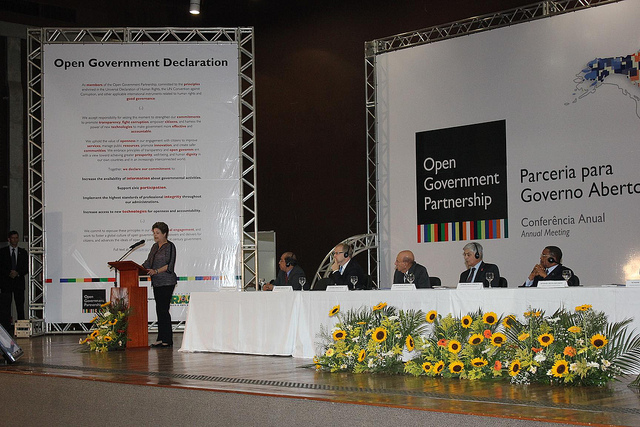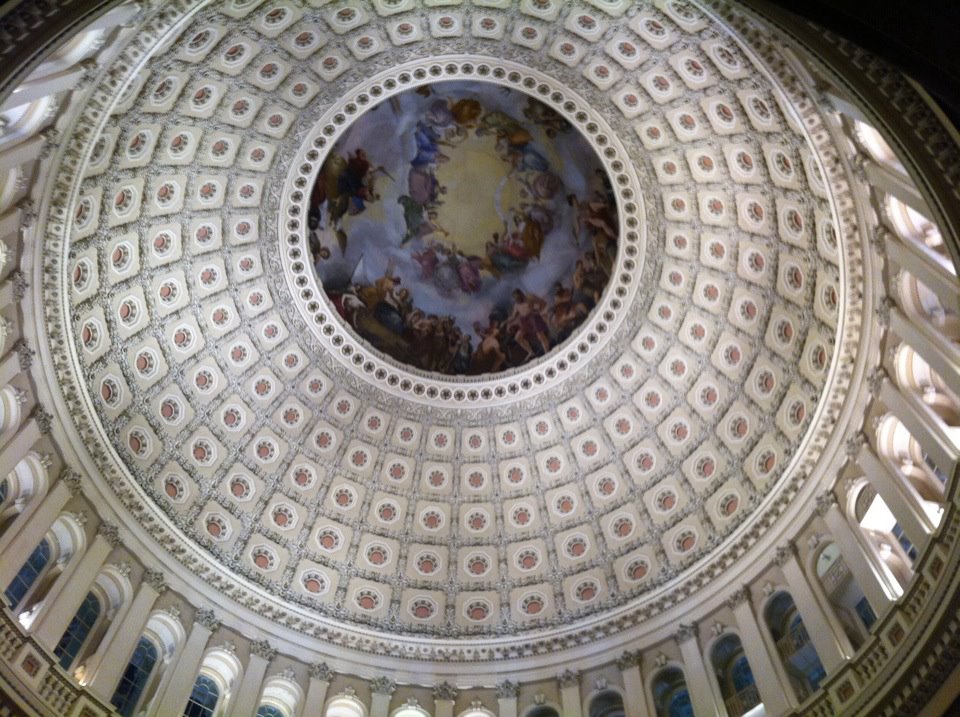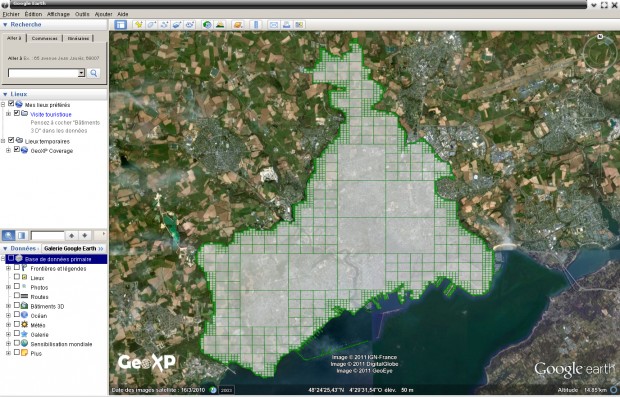- The Future of a Map is Its Information (The Atlantic) — maps are how we display data when we, the brain, wish to answer a question. Technology is rapidly expanding the questions we don’t need to look at a map to answer: directions, weather forecasts, dining …. (via Flowing Data)
- Governments Don’t Have Websites, Governments Are Websites (MySociety) — the best part about MySociety’s recent funding is that Tom Steinberg is blogging more. The majority of citizens don’t have deep, all encompassing, everyday interactions with the state – at most they drop their kids at school every day, or visit the GP a few times a year. That’s as physically close as they get. To these people, interacting with government already feels somewhat like interacting with Amazon. It sends them benefits, passports, recycling bins, car tax disks from mysterious dispatch offices and it demands money and information in return. The difference is in emotional tone – the Amazon online interactions tend to be seamless, the government online interactions either painful or impossible – time to pick up the phone.
- The Future of Manufacturing is America not China (Foreign Policy) — robots + AI + low-cost or shared public manufacturing facilities = the future of manufacturing.
- Captured America (The Atlantic) — Larry Lessig observes the tilted playing field responsible for America’s inability to govern itself: A tiny number of Americans — .26 percent — give more than $200 to a congressional campaign. .05 percent give the maximum amount to any congressional candidate. .01 percent give more than $10,000 in any election cycle. And .000063 percent — 196 Americans — have given more than 80 percent of the super-PAC money spent in the presidential elections so far.
"Gov 2.0" entries

Mobile participatory budgeting helps raise tax revenues in Congo
The World Bank found the ROI in open government through civic participation and mobile phones.
In a world awash in data, connected by social networks and focused on the next big thing, stories about genuine innovation get buried behind the newest shiny app or global development initiative. For billions of people around the world, the reality is that inequality in resources, access to education or clean water, or functional local government remain serious concerns.
South Kivu, located near the border of the Democratic Republic of Congo, has been devastated by the wars that have ravaged the region over the past decade.
Despite that grim context, a pilot program has born unexpected fruit. Mobile technology, civic participation, smarter governance and systems thinking combined to not only give citizens more of a voice in their government but have increased tax revenues as well. Sometimes, positive change happens where one might reasonably least expect it. The video below tells the story. After the jump, World Bank experts talk about story behind the story.
“Beyond creating a more inclusive environment, the beauty of the project in South Kivu is that citizen participation translates into demonstrated and measurable results on mobilizing more public funds for services for the poor,” said Boris Weber, team leader for ICT4Gov at the World Bank Institute for Open Government , in an interview in Washington. “This makes a strong case when we ask ourselves where the return of investment of open government approaches is.”

Rethinking regulatory reform in the Internet age
Rep. Issa advocates for applying evidence-based thinking to regulatory reform.
As the cover story of a February issue of The Economist highlighted, concerns about an over-regulated America are cresting in this election year, with headlines from that same magazine decrying “excessive environmental regulation” and calling for more accurate measurement of the cost of regulations. Deleting regulations is far from easy to do but there does appear to be a political tailwind behind doing so.
As a legislator and chairman of the Government Oversight and Reform Committee, it’s fair to say that Representative Darrell Issa (R-CA) been quite active in publicly discussing the issue of regulations and regulatory burdens upon business. As a former technology entrepreneur, and a successful one at that (he’s the wealthiest member of Congress) Rep. Issa does have first-hand knowledge of what it takes to run a business, to bring products to market, and to deal with the various regulations.
In a wide-ranging interview earlier this summer, Rep. Issa commented on a number of issues related to open government and the work of the committee. When we talked about smart disclosure and the reforming the Freedom of Information Act, I posed several questions about regulatory data, in the context of its role in the marketplace for products and services. Our interview on regulation is below, followed by a look at how his office and the White House are trying to use the Web to improve regulatory reform and involve citizens in the debate.

Do citizens have a ‘right to record’ in the digital age?
When Representative Darrell Issa (R-CA) and I talked this summer about his proposal for a digital Bill of Rights, I followed up by asking him about whether it might be more productive to focus on the rights that we already have in the digital context.
That conversation naturally led to a question about freedom of assembly and freedom of the press, both of which came under some pressure in the United States during the Occupy protests of the past year. Our interview follows.

Does the Open Government Partnership merit more oversight and attention?
Rep. Issa weighs on on the Open Government Partnership and international treaties.
There are any number of responsibilities and challenges inherent in moving forward with the historic Open Government Partnership (OGP) that officially launched last September. Global Integrity’s recent assessment of the National Action plans submitted to the Open Government Partnership by participating countries found cause for both concern and optimism, As I’ve highlighted elsewhere previously.
The National Action Plan commits the United States to 18 different open government initiatives, including implementing the Extractive Industries Transparency Initiative (EITI). One of the primary functions of the committee that Representative Darrell Issa (R-CA) chairs in the U.S. House is to provide oversight of what’s happening in the Executive Branch of government. In that context, the Government Oversight and Reform has an important role in overseeing not just what the proposals are but how they’re actually executed by agencies. In March 2011, the committee held a hearing on open government initiatives in the United States.
Earlier this summer, I interviewed Rep. Issa about a number of issues related to open government at the federal level including the involvement of the United States in OGP. Here’s what he had to say on the topic:

Uncertain prospects for the DATA Act in the Senate
If legislative efforts to standardize federal government spending data founder in the U.S. Senate, it's a missed opportunity.
The old adage that “you can’t manage what you can’t measure” is often applied to organizations in today’s data-drenched world. Given the enormity of the United States federal government, breaking down the estimated $3.7 trillion dollars in the 2012 budget into its individual allocations, much less drilling down to individual outlays to specific programs and subsequent performance, is no easy task. There are several sources for policy wonks to turn use for applying open data to journalism, but the flagship database of federal government spending at USASpending.gov simply isn’t anywhere near as accurate as it needs to be to source stories. The issues with USASpending.gov have been extensively chronicled by the Sunlight Foundation in its ClearSpending project, which found that nearly $1.3 trillion of federal spending as reported on the open data website was inaccurate.
If the people are to gain more insight into how their taxes are being spent, Congress will need to send President Obama a bill to sign to improve the quality of federal spending data. In the spring of 2012, the U.S. House passed by unanimous voice vote the DATA Act, a signature piece of legislation from Representative Darrell Issa (R-CA). H.R. 2146 requires every United States federal government agency to report its spending data in a standardized way and establish uniform reporting standards for recipients of federal funds.

The dark side of data
In a world of big, open data, "privacy by design" will become even more important.
A few weeks ago, Tom Slee published “Seeing Like a Geek,” a thoughtful article on the dark side of open data. He starts with the story of a Dalit community in India, whose land was transferred to a group of higher cast Mudaliars through bureaucratic manipulation under the guise of standardizing and digitizing property records. While this sounds like a good idea, it gave a wealthier, more powerful group a chance to erase older, traditional records that hadn’t been properly codified. One effect of passing laws requiring standardized, digital data is to marginalize all data that can’t be standardized or digitized, and to marginalize the people who don’t control the process of standardization.
That’s a serious problem. It’s sad to see oppression and property theft riding in under the guise of transparency and openness. But the issue isn’t open data, but how data is used.


Four short links: 19 July 2012
Answers not Maps, Government in Web Sites, Future of Manufacturing, The .000063% Influencers

We the People need our existing Bill of Rights to apply in the digital domain
Why propose principles for Internet freedom and a "Digital Bill of Rights" when existing ones will do?
How the Bill of Rights is being upheld in a digital context is, to say the least, an interesting living story to follow.
The passage of a resolution that human rights must also be protected on the Internet in the United Nations Human Rights Council was a historic affirmation of the principle that “the same rights that people have offline must also be protected online.”
This affirmation may play well in the headlines, but it does raise some practical questions. For instance, would this high-level resolution by the U.N. Human Rights Council inhibit member countries if they violate their citizens’ right to freedom of expression online, if such countries are already violating human rights offline? Or would the U.N. Security Council ever vote for sanctions over Internet censorship of political or religious content that might be online speech in one country and deemed blasphemous or even illegal in another?
Violators could include Iran, Russia, Cuba, Syria — but also Pakistan, China, India or the United States or United Kingdom, should a livestreamer’s smartphone be taken away during a march or cell service shut down during a protest, as it was at a BART in San Francisco.
In this context — and related to their concerns about similar bills to the Stop Online Piracy Act and PROTECT IP Act — Rep. Darrell Issa and Sen. Ron Wyden proposed a “Digital Bill of Rights” at the 2012 Personal Democracy Forum in New York City this summer.
In a phone interview last month, I asked Rep. Issa about the ideas behind the proposal principles and freedom of expression online.

Predictive data analytics is saving lives and taxpayer dollars in New York City
Michael Flowers explains why applying data science to regulatory data is necessary to use city resources better.
A predictive data analytics team in the Mayor's Office of New York City has been quietly using data science to find patterns in regulatory data that can then be applied to law enforcement, public safety, public health and better allocation of taxpayer resources.

The emerging political force of the network of networks
12 talks from the 2012 Personal Democracy Forum worth watching and sharing.
The ninth Personal Democracy Forum explored the nexus of technology, politics and campaigns. What's happening online matters offline. Indeed, the barrier between the virtual and physical worlds has fallen.


